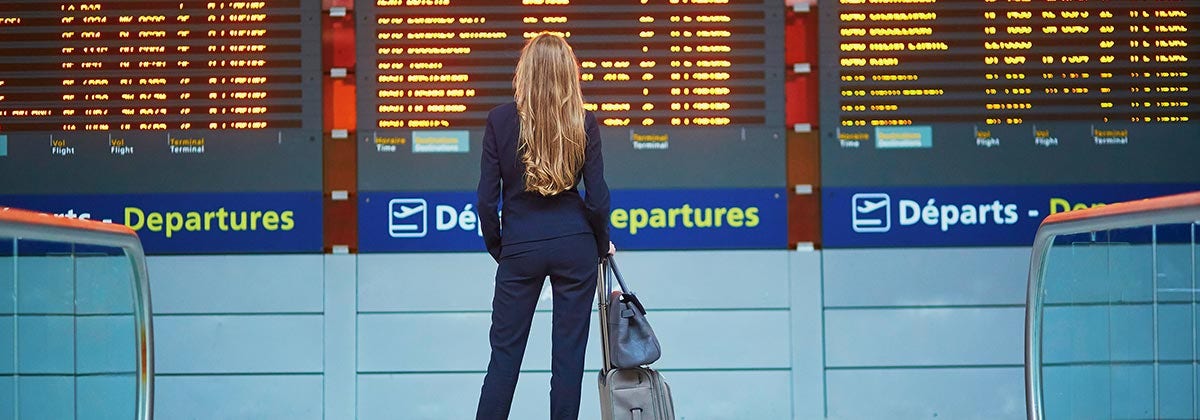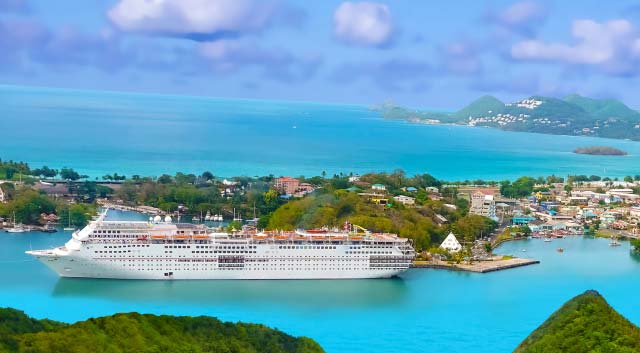2025 Summer Travel Trends Survey: New Adventures, Tighter Budgets, and Travel Concerns
As the 2025 summer travel season begins, Americans are setting their sights on new adventures. According to our latest survey on summer travel plans, 77% of Americans say they’re happy or excited to travel this year. However, this excitement comes with notable shifts in how they are planning, budgeting, and protecting their vacations.
From shorter trip durations to tighter travel budgets, today’s U.S. travelers are becoming more mindful and proactive. At the same time, concerns like flight delays, scams, and lost luggage are pushing more travelers to think about how to prepare for the unexpected — including the smart use of travel insurance and assistance services.
In this blog, we’ll break down the key findings from the survey data and show how you can plan a more confident trip this summer.
Travel Trends: How Travel Looks Different in 2025
Smaller Budgets, Smarter Spending
The average travel budget for summer 2025 is $3,132 — a noticeable drop from previous years. Travelers are being more selective about how and where they spend, focusing on experiences that offer the most value.
That doesn’t mean they’re cutting back on fun. Instead, people are:
- Taking shorter trips
- Using reward points and travel deals
- Prioritizing quality over quantity
It’s about making every dollar count without sacrificing enjoyment.
Trips Are Getting Shorter
Vacations this summer are averaging 1.5 weeks, a few days shorter than last year’s average. This trend reflects not just tighter budgets but also tighter work schedules and a growing preference for quicker, meaningful getaways.
Read more: Top Traveler Concerns in 2025 and How Travel Protection Can Help
Small Group Travel Takes the Lead
The average number of people traveling together is 2.4 — usually a couple, a solo traveler, or a small family. Smaller travel groups allow for greater flexibility in booking transportation, hotels, and activities. It also helps with keeping costs manageable and experiences more personalized.
Travelers Are Booking Early
Planning ahead is becoming the norm. 71% of travelers are booking at least two months in advance, locking in better rates and availability. If you’re hoping to score good deals or stay at in-demand destinations, early planning is key.
Last-minute bookings often mean fewer options and higher prices — especially during peak summer travel periods.
U.S. Destinations Are Still the Favorite
Most travelers this year are choosing to stay closer to home. 53% prefer domestic trips, while only 25% are planning to go abroad. With the strength of the U.S. dollar and the convenience of staying stateside, it’s no surprise that national parks, coastal towns, and vibrant cities remain top picks.
But that doesn’t mean international travel is off the table — it’s just more intentional. U.S. travelers heading overseas are more likely to purchase protection plan for unexpected delays or complications.
Canada, Italy, and France topped the list of summer destinations again this year, and some newcomers to the top 10 list are New Zealand and the United Kingdom.

AI Is Shaping the Way People Travel
Artificial intelligence is becoming a big player in travel planning. 22% of travelers already use AI tools to plan trips, and 25% say they will in the future.
AI-powered travel assistants can:
- Suggest personalized itineraries
- Compare transportation options
- Identify low-fare alerts
This trend reflects a shift toward convenience, automation, and smarter decision-making.
Travelers Want Meaningful Experiences
Many travelers are placing more value on connection, nature, and culture. Instead of tourist traps or rushed itineraries, they’re looking for:
- Outdoor adventures and wellness escapes
- Local cuisine and immersive activities
- Cultural festivals and historic sites
This focus on meaningful travel experiences ties into broader shifts toward sustainable and socially conscious tourism. For instance, the number of travelers interested in traveling by train has increased 26% since last year.

Top Travel Concerns: What’s Worrying U.S. Travelers in 2025?
In addition to the usual concerns about travel delays or cancellations, some other findings in the survey stood out:
- Worry about getting sick while traveling is up 16% from last year. Concerns about another pandemic are up 17%.
- Fear of natural disasters has risen 41% this year.
- Political instability is a growing concern, up 37%.
- 41% are concerned about personal safety during trip planning.
Delays and Cancellations Still Plague Air Travel
Concern over trip cancellations and delays has increased by 28% according to our survey.
Airlines continue to face challenges with staffing, weather disruptions, and logistics. Missed connections and delayed flights can result in:
- Missed events or tours
- Extra hotel stays
- Additional transportation costs
If you're flying this summer, allow extra time in your itinerary and consider flights with longer layovers to reduce stress.
Travel Scams Are Becoming More Sophisticated
42% of travelers in the survey worry about scams.
Fake booking sites, phishing emails, and scam ads are targeting travelers at every stage of the planning process. These scams can lead to:
- Lost money
- Identity theft
- Missed travel opportunities
To protect yourself, always book through trusted platforms and be cautious of deals that seem too good to be true.
Lost and Delayed Luggage
Lost luggage remains a top frustration for air travelers. Bags may be delayed, mishandled, or never arrive — especially during peak travel months.
To prepare:
- Pack essentials in your carry-on
- Use GPS luggage tags or tracking apps
- Save receipts or take photos of packed items for claims

Changing Plans Mid-Trip
Life happens! Trips sometimes need to be adjusted or canceled. Whether it’s a family emergency, illness, or severe weather, unexpected changes can be costly if you’re locked into non-refundable bookings.
Travel Protection: Why It Matters in 2025
Despite rising travel concerns, just 41% of U.S. travelers say they plan to purchase travel protection this summer. That leaves a large number of people vulnerable to financial losses if their plans go sideways.
What Travel Protection Can Help With
Travel protection is more than just a “nice to have.” It can provide important support when things go wrong — including concerns that the survey shows are weighing on travelers:
- Trip Cancellation: Helps reimburse you if you cancel for a covered reason, such as illness or a family emergency.
- Trip Interruption: Like Trip Cancellation, but for covered events during your trip, helps reimburse you for lost trip costs and help getting back on your trip or back home.
- Baggage coverage: Helps with reimbursement for lost or delayed luggage and essentials.
- Medical Expenses: Helps reimburse you if you get sick or injured while traveling.
- Medical Evacuation: If you need emergency transport to the nearest hospital or back home.
- 24/7 Travel Assistance: Constant access to help for travel emergencies like replacing lost passports, locating medical providers, or finding local services.
These benefits offer real value, especially if you're traveling to areas with unpredictable weather, connecting flights, or minimal access to healthcare.
It’s More Affordable Than You Think
Many travelers skip travel protection because they think it will add too much to their travel budget. But for a $3,132 trip, travel protection can cost only a small percentage of the total — and potentially help with costly expenses if something unexpected happens.
Travel With Confidence in 2025
The 2025 travel season is shaping up to be busy, joyful, and full of new possibilities. But it’s also a time to stay alert and make thoughtful choices. Planning ahead, being flexible, and helping protect your trip can make a huge difference if the unexpected happens.
Here’s how to travel smarter this summer:
- Book early to lock in rates and options.
- Use trusted platforms and avoid scams.
- Prepare for delays, especially with flights.
- Consider travel protection to help safeguard your time, money, and well-being.
Need travel protection for your next trip? Generali Global Assistance offers plans designed to help when things don’t go as planned. With benefits that help reimburse certain delays, cancellations, lost items, and medical emergencies, plus 24/7 support and helpful Concierge Services you can explore with greater confidence.
Get a quick no obligation quote to check prices for your trip.
8456512506


